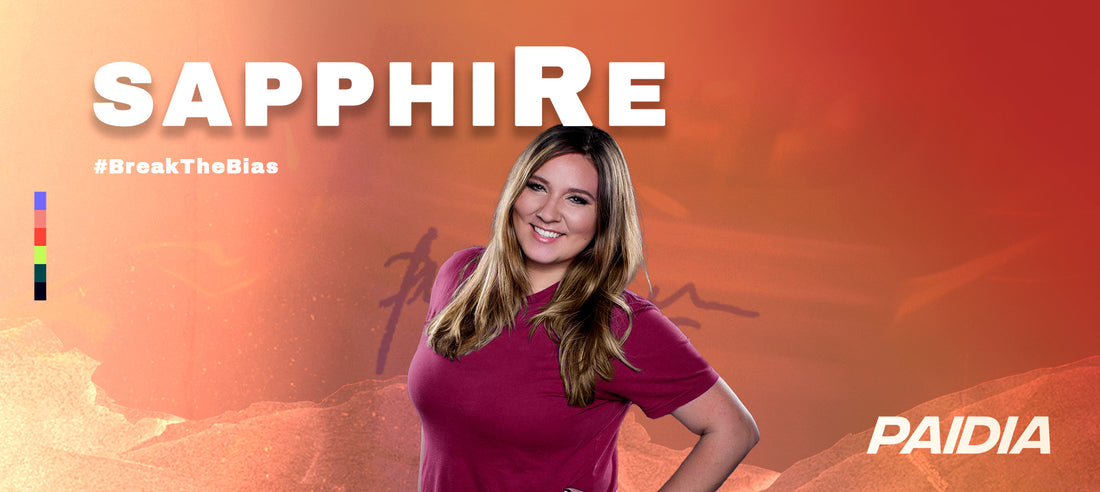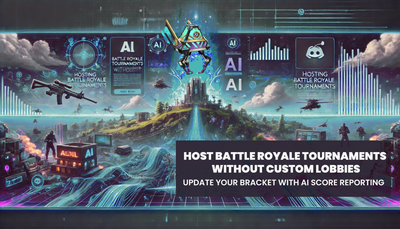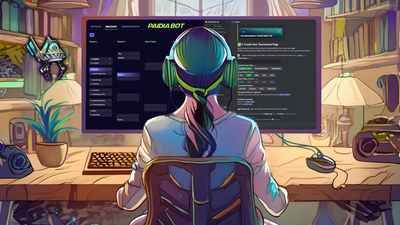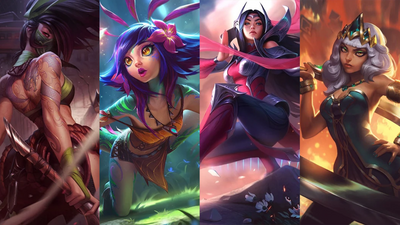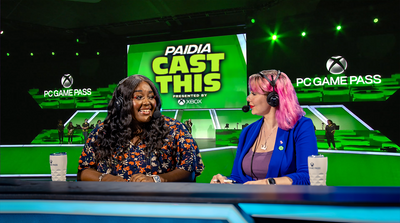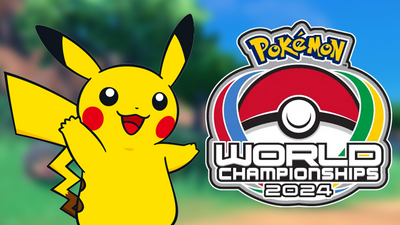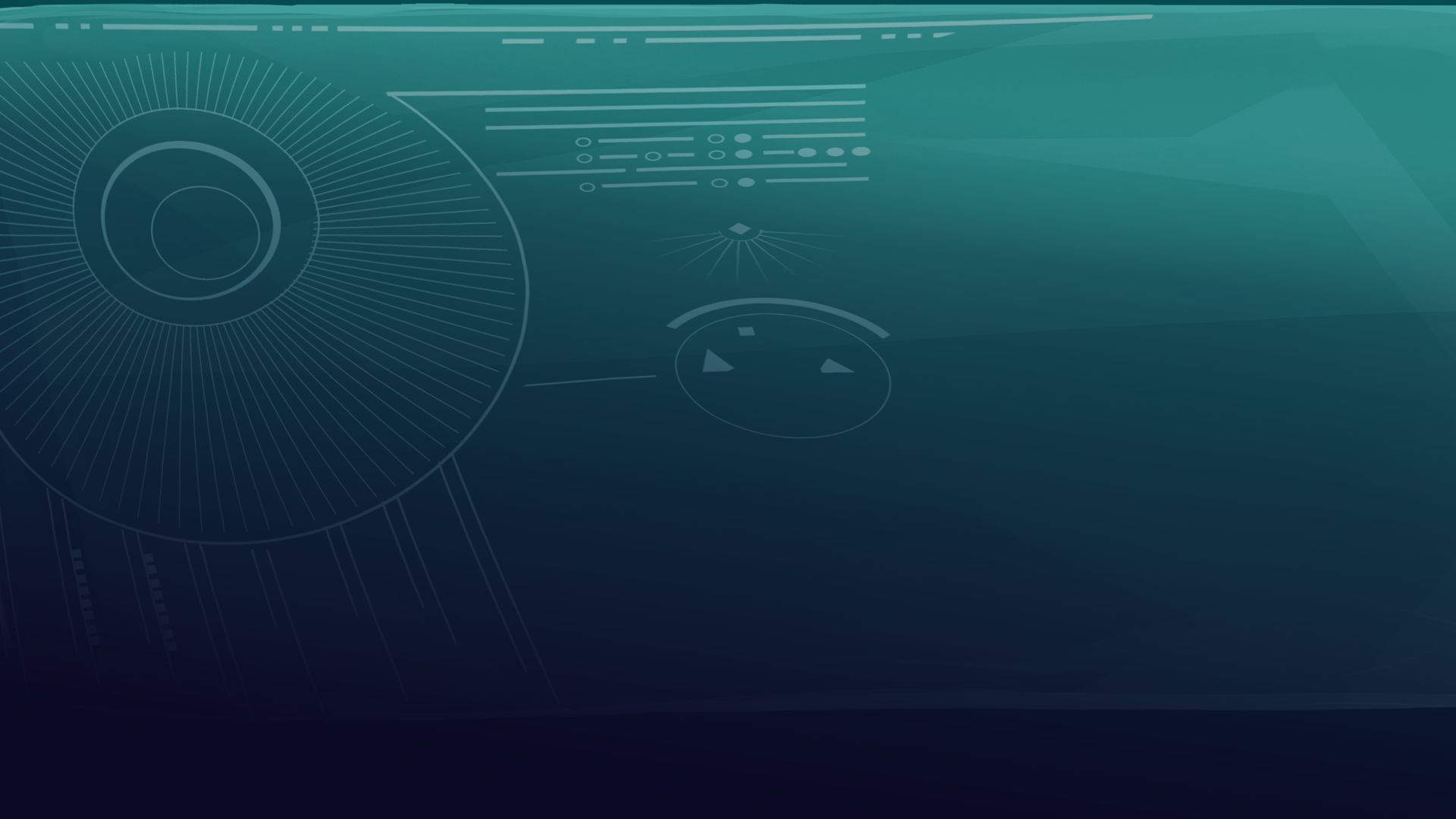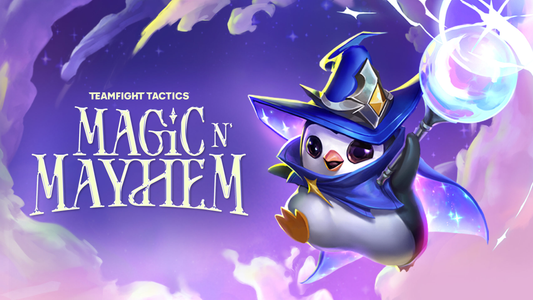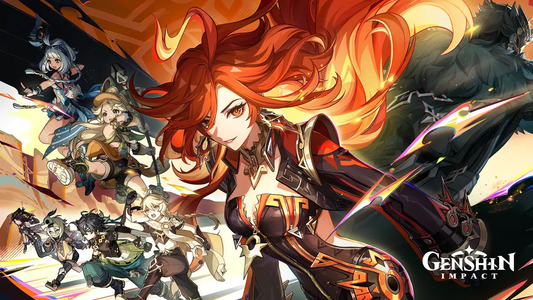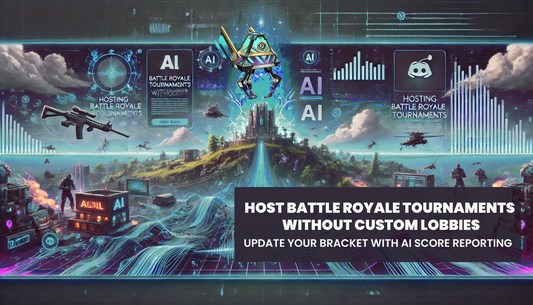Written by: Yasmin Aboelsaud
Originally posted on: March 28, 2022
How a 20-year veteran in esports is creating an encouraging space for women gamers
Growing up in the early 2000s, Heather “sapphiRe” Garozzo was a multi-sport athlete who was on varsity teams throughout school. Being highly competitive, Heather would watch her brother and his friends enter gaming tournaments on weekends at a time when she was playing video games just for fun.
“I thought it was pretty weird at first, that there was prize money,” she said, admitting that when she was younger, she thought it was “nerdy” considering she was an athlete.
“But at the same time I thought my younger brother is winning prize money, I am not winning any money playing varsity sports. And I am just highly competitive, so I started to try it out a bit.”
Heather said she would have to borrow her younger brother’s computer to game at the time.
And the 36-year-old remembers when she had a realization that gaming was actually something she was interested in beyond just playing at home.
In 2002, Heather went to a “BYOC” (Bring Your Own Computer) tournament in Dallas. “It hit me that it was a competitive sport when I watched the pro teams play,” she said, adding that there was an energy in the room. “This is really competitive,” she realized, and she thought “I really want to be playing on stage.”
While she entered her first tournament at 15, it took a while for Heather to build a career path in the esports world. As she was growing up, prize money felt “so niche that it wasn’t an actual career.” And that’s also what people around her would say, “this is a hobby, this is not a career."
A few years later, she got a paid gig as part of a gaming team. And when Twitter first became popular in 2007, Heather decided to follow her brother around to gaming events and live tweeted from them. This helped her land a few offers working with different news outlets, and she “did that on the side to sustain the travel.”
It wasn’t until 2015 that Heather became a professional observer, after ESL needed one for the weekend. And then in 2017, as she wrapped up playing professionally, the NBA’s Philadelphia 76ers had reach out and said they wanted to buy her women’s Counter-Strike team.
“We quickly accepted that offer,” she said. “Just having that validation, supporting our esports team, that’s when it really hit me and it’s so sad that it took that many years. It was such a small thing back in the early days, and from that I got a full time job doing gaming.”
When Heather began her gaming life, there was a striking difference to those starting now.
“We didn’t have YouTube or Twitch when we first started,” she said. “To be able to be known as a player was extremely difficult. If someone didn’t watch you play live, a lot of people couldn’t share how good they were, and getting on teams was very difficult.”
She explained the only way to get exposure was to travel to land tournaments, which was expensive to do back then.
“That’s one of the biggest changes today, it is easier to notice players,” said Heather, adding that there are also more players now on several content platforms.
But Heather’s growth in this industry is what’s made her an expert and an industry veteran in esports.
“Back in the early 2000s, I was the only woman in the room, it just wasn’t a thing,” she said, describing her presence in tournaments then. “There were a handful of other women that I knew of that played, but the chances of ever running into one at a game just didn’t happen.”
Which makes Heather’s career path even more impressive, as she started with small paid opportunities, and landed different roles over the years to be where she is today. And she said that this is just the start.
“[The industry] has gotten so much better over the years. There are so many paid professional women’s teams that pay livable salaries,” she said. “I see it improving a lot. I would love to see women on top tier teams, which isn’t common right now when you look on Twitch when you see the top most watched streamers, for that we have a lot of room to improve.”
But Heather, now the VP of events at Dignitas, is a glass half-full kind of person.
“[Gaming] has gotten so much better over the years and I love the trajectory that we are on.”
And she certainly would know, as an inductee into the Esports Hall of Fame & Women in Games Hall of Fame.
When she received the notification about the Esports Hall of Fame in 2018, she said she had a lot of “imposter syndrome.”
“I didn’t feel like I had earned it yet,” she said. “It is an incredible honour.”
And just last year, she was nominated and voted to be inducted for the Women in Games Hall of Fame.
“For years, I would get very upset if someone would mention my gender. I didn’t want to be classified,” she said. “But now, I realize how important that is.”
Heather has some reaching out to her saying that they loved to watch her game, and that she has inspired them to enter their first competitions.
“This representation is very important. Years ago, I would shy away from it and now I certainly embrace it more,” said Heather. “One of the impacts I think I have had is just helping a lot of women gain the confidence to compete.”

And that, to many, is a lot.
Recently, Heather helped found an LA-based platform called Raidiant, which puts together women's tournaments and acts as entry points to become competitive in larger events.
“I have seen so many women make comments about not being good enough to play in an event, which is open to anyone. But you are good enough, you should play.”
Raidiant, which launched in November of 2021, also gives teams more exposure, and catalogues women’s rosters.
“I am trying to do more for the scene, and things that haven’t been done before,” she said.

“There’s so much room to grow with women’s esports teams.”
Since launching, Raidiant has hosted various tournaments, and has over 250 women’s teams listed on their platform.
The way women are competing and training have left Heather impressed, and hopeful for the future of women in the industry.
“I feel very positive about where it’s going. Every day I see something amazing from the women in this space, and whether in a competition or a stream, the amount of women on the competitive side is so impressive,” she said, reminding us that this wasn’t possible years ago.
“There will always be casual players, which is fantastic, but the number of women that are focused on just grinding as much as humanly possible to be better at the game and get on teams and win more events is really really exciting,” Heather said.
And she projects there will be more and more women playing and competing in the future, “because there are more and more women doing it and there are more women inspired by it.”
Heather remembers when she was young, she only had her brother to look upto in esports.
“Now, there are so many women in the spotlight and that encourages even more women to dive in and follow their path,” she said.
"So I am very excited about where we are going.”

